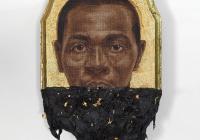
Recent News

Kyle Haddad-Fonda, a lecturer within the Department of History, is teaching a new course he developed, the Modern Olympics Games. We caught up with Kyle to talk about this course and what inspired him to create it.You are a historian of modern China and the Middle East, and in the past you have taught courses about the Cold War and about modern North Africa. How did you come up with the idea…

Come curious. Leave inspired. The UW offers an exciting lineup of in-person and online events. From thought-provoking art and music to conversations on culture, history, and science, the UW community invites you to explore, learn, and connect across disciplines throughout the University. And you don’t have to wait until Marchtake a look at everything still happening this February. In addition,…

UW History graduate student Joana Bürger recently sat down for a conversation with Mark Letteney, archeologist and professor of ancient history affiliated with the history department, the Stroum Center for Jewish Studies, and the comparative religion program, to talk about the publication of his latest book Ancient Mediterranean Incarceration that was released by University of California…

While February might be just 28 days, the UW College of Arts & Sciences offers an exciting lineup of more than 40 in-person and online events. From thought-provoking art and music to conversations on culture, history, and science, the UW community invites you to explore, learn, and connect across disciplines throughout the University.
Featured
on UW News

Looking for gifts that go beyond the typical stocking stuffers? This holiday season, wrap a little UW magic and celebrate learning, culture and connection across the University. From museum and arboretum memberships to books and performances, this curated list highlights meaningful ways you can share the spirit of curiosity and generosity.
Featured
on UW Magazine

Looking for gifts that go beyond the typical stocking stuffers? This holiday season, wrap a little UW magic and celebrate learning, culture and connection across the University. From museum and arboretum memberships to books and performances, this curated list highlights meaningful ways you can share the spirit of curiosity and generosity.
Featured
on UW Magazine

UW History's Prof. Josh Reid was recently interviewed by ICT News for a November 19, 2025 article on the block being experienced by the Makah Tribe to carry out their treaty rights to whaling.

The Apocalypse of Pseudo-Methodius was one of the medieval world's most popular and widely translated texts. Composed in Syriac in Mesopotamia in the seventh century, it presented a new, salvific role for the Roman Empire, whose last emperor, it prophesied, would help bring about the end of the ages. In his new book, the first book-length study of Pseudo Methodius, visiting…

Sudans civil war has become a humanitarian catastrophe of staggering scale, marked by famine, ethnic cleansing and sexual violence. Christopher Tounsel, associate professor of history at the UW, is interviewed.Featured
on PBS News

The "996" schedule is 12-hour shifts, 6 days a week and it's captivated Silicon Valley tech leaders. NPR's Ayesha Rascoe speaks with Margaret O'Mara, professor of history at the UW, about this workplace trend.
Featured
on KUOW